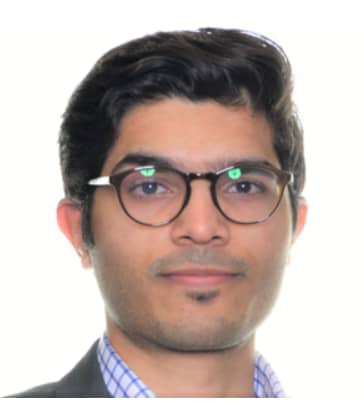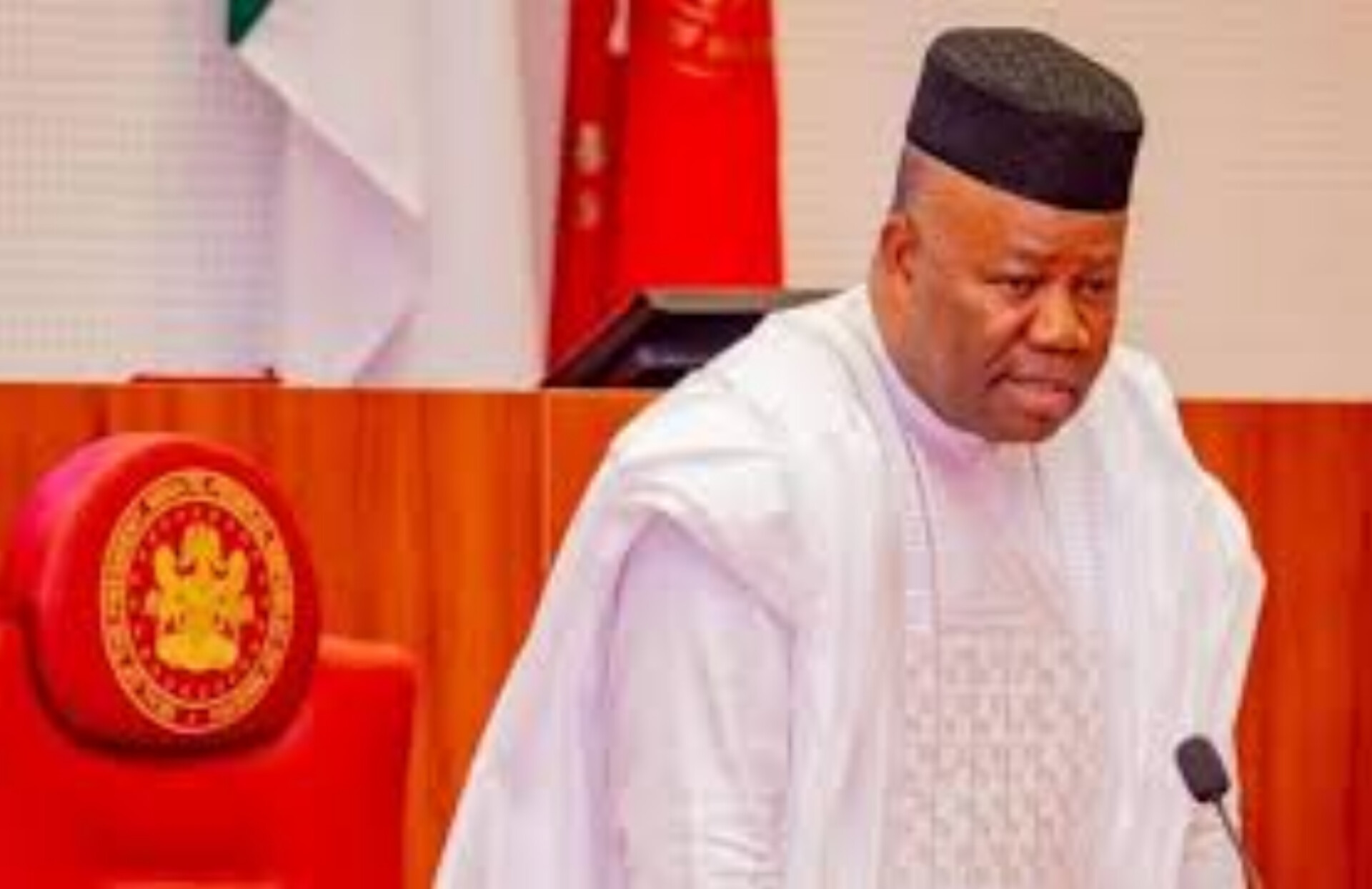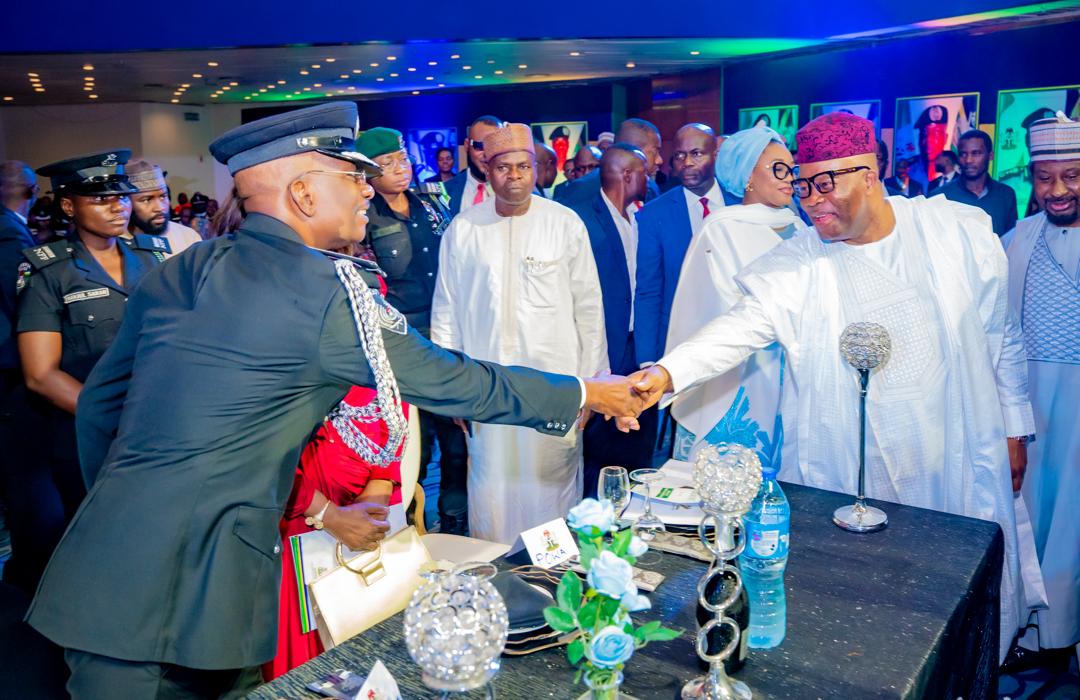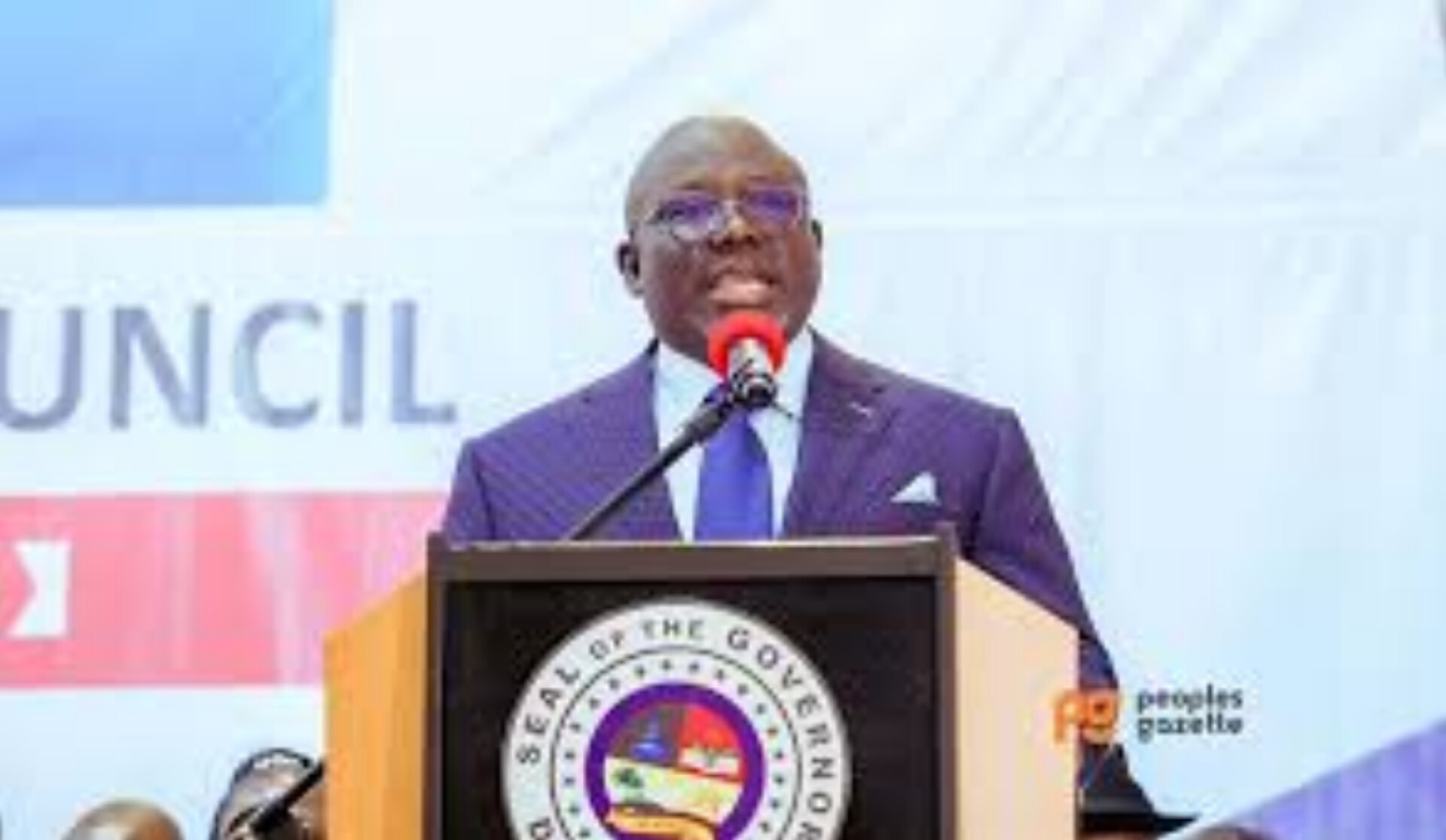Security
HOW NIGERIAN HEALTHCARE ORGANIZATIONS CAN IMPROVE THEIR SECURITY ACCORDING TO A GLOBAL CYBER EXPERT

By Adetaio Otuyemi
In 2021, a total of $706,452 was paid as ransom to cybercriminals by Nigerian businesses and organisations. The average cost of rectifying a cyber-attack in the country also went up from $0.46 million in 2020 to $3.43 million in the same year.
Cybersecurity entails the protection of internet-connected systems such as hardware, software, and data from external and internal cyber threats. The practice is used by individuals and enterprises to protect their systems against unauthorized access to data centres and other computerized systems. Cybersecurity access management in particular is crucial especially in today’s world where a very high percentage of sensitive data including personal and government data lives digitally. This article will cover healthcare cybersecurity access management in detail by considering expert input from a global cybersecurity expert, Ameya Khankar. He is a highly regarded and trusted cybersecurity professional focusing on the areas of technology risk, enterprise transformations, and digital governance. He advises large global enterprises as an expert on enterprise technology risks with a deep focus on strategies to strengthen their cybersecurity posture. He has advised $3 billion, $4 billion, and $9 billion healthcare organizations meet complex cybersecurity regulatory requirements in the past.
CYBERSECURITY: A CRTICIAL NEED FOR HEALTHCARE ORGANISATIONS IN NIGERIA
Nigerian healthcare organisations today are no strangers to cyber threats, in a world where everything is moving to digital technologies, medical records definitely aren’t left out either. Critical medical information in the wrong hands is like placing the nuclear launch codes in the hands of anarchists and global terrorists.
In the case of a developing country like Nigeria whereby health records are often unsecured – there is an urgent need for a stronger framework for tactically securing health records especially relating to cloud technologies.
There is a strict and professional observance of patient confidentiality which is recognised by law as codified in the Nigerian National Health Act (NHA) 2014 where adequate provisions for the privacy rights of patients were developed. The section 26 (1) of the NHA clearly states that “all information concerning a user, including information relating to his or her health status, treatment or stay in a health establishment is confidential”. Unfortunately, implementation of these protocols by healthcare organizations to protect patient data is significantly lacking as evidenced by overall increase in the rate of cybercrime in Nigeria. Nigerian law also recognises healthcare as a National Critical Information Infrastructure sector. Infringement occurring on this critical infrastructure is punishable by law as codified in the Cybercrimes (Prohibition & Prevention) Act 2015.
There are three (3) critical leading practices that healthcare organizations in Nigeria should consider to protect themselves from cyber threats:
•ESTABLISH/FOSTER SECURITY CULTURE
•CONTROL ACCESS THROUGH PRINCIPLE OF LEAST PRIVILEGE
•PLAN FOR THE UNEXPECTED
ESTABLISH/FOSTER SECURITY CULTURE
Nigerian healthcare organizations inherently lack an established cybersecurity culture as demonstrated by the rise in ransomware cybercrime. Cyber security culture, like any organizational culture, should be cultivated, nurtured, and sustained.
According to data published by a top global cyber security firm, Sophos, 71 per cent of Nigerian businesses were hit with ransomware in 2021, up from 22 per cent in 2020.
According to top global cybersecurity expert, Ameya Khankar; who has developed several successful cybersecurity strategies for healthcare businesses worldwide, the following ways should be considered by any serious Nigerian healthcare organization:
•Assess the organizational culture and establish where organizational security stands currently
•Outline the mission by clearly establishing what constitutes success for cybersecurity initiatives
•Establish executive leadership participation to drive the priorities for employees to foster a healthy cyber-security culture
•Clearly define expectations to eliminate ambiguity with a detailed plan specifying roles, goals, and responsibilities for departments if a cyber-attack occurs
•Allocate resources to invest in the development of cyber security platforms and familiarise employees especially the ones handling key medical records with protocols to tackle cyber attacks
CONTROL ACCESS THROUGH PRINCIPLE OF LEAST PRIVILEGE
The Nigerian cyber space is the 2nd most attacked country, according to the Sophos survey which revealed that 86% of Nigerian companies fell prey to attacks.
According to Ameya Khankar, the principle of least privilege (PoLP) is an information security concept which maintains that a user or entity should only have access to the specific data, resources, and applications needed to complete a required task. Ameya emphasizes that this is particularly critical for cloud applications that store sensitive patient information in order to not only safeguard the information from external threats but also from internal threats within the organization. He further adds that this principle should be implemented along with the AAA principle. AAA stands for authentication, authorization, and accountability. This framework addresses the need to verify the identity of users seeking access to a network or other resource (authentication), determine what they’re allowed to do (authorization), and track all actions they take (accountability).
Furthermore Ameya Khankar outlines the benefits of implementing privileged access management to be “not only the protection of healthcare organisations from potential insider and outsider threats but also regulatory compliance where access to patient records should be restricted and patient privacy should be maintained. This may mean designing the cloud application security in such a way that the most critical patient data has the highest amount of access restrictions.” Thus a doctor, nurse, surgeon, or consultant that needs permission to a patient’s data would not have access to data beyond what is required for them to perform their duties. From a back-office processing standpoint, this means that a healthcare developer who needs rights to write code in a test environment would not have permission to also move lines of code into production. The developer also likely does not require access to sensitive patient information to do their job and thus their access should be restricted and segregated within the cloud environment.
PLAN FOR THE UNEXPECTED
Rising cybersecurity threats in Nigeria can lead to unforeseen challenges, disasters, and roadblocks while preparing to prevent a cyber-attack.
Ameya Khankar, in his experiences as a top global cyber security expert has highlighted the need for healthcare organisations in Nigeria, both privately and publicly owned to adopt a “meta-readiness approach”, which essentially entails working to reduce potential adverse outcomes to a negligible level by careful planning, stress-testing, and red-teaming (hiring an independent group of attackers to test your defences). It also means not getting bogged down by protocols when a cyber attack does actually occur and instead adopting a mindset of flexibility and adaptability in order to overcome a cyber breach.
He highlighted that Nigerian healthcare organisations will have to protect their reputation and it will depend on how seriously they prepare for the possibility of a cyber attack, how well they respond to the cyber threat if it occurs, and how they demonstrate resilience to successfully emerge from the crisis while protecting patient trust.
Security
Akpabio advocates State police devoid of shackles of Politics, religion, tribalism

As debate on State police gained traction on Monday the President of the Senate Godswill Akpabio has admonished that the state police departments that must be set up must be free from the shackles of politics, religious extremism, tribalism, and ethnicism.
Akpabio who spoke on Monday at the National Dialogue on security and State Police organised by the House of Representatives, said it is important to ensure that the right of Nigerians are upheld, that justice is served, and that the rule of law prevails.
He urged Nigerians not forget that security is not a privilege, but a fundamental right of every Nigerian.
“If we are to set up state police departments, we must ensure that they are free from the shackles of politics, religious extremism, tribalism, and ethnicism.
“We must build a security architecture that is robust, transparent, and accountable.
“We must empower them to serve and protect, without fear or favour.
According to him, it is necessary to draw inspiration from the United States of America, a nation that has successfully implemented a system of state and federal policing.
“Let us learn from their experiences and adapt their models to suit our unique socio-political context.
“Let us ensure that our state police forces work in harmony with their federal counterparts, collaborating to fight crime, preserve peace, and safeguard our democracy.
“In the USA, the FBI, the federal police body enforces federal laws and the state police departments enforce state laws. The FBI also investigates inter-state crimes. We must draw the lines because to have functional state police we must have a strong federal police.
“But let us never forget that the power of the state police should never be used as a tool of oppression or witch-hunting.
“Let us ensure that political powers do not manipulate the state police to silence dissent or target their enemies.
“Let us ensure that the influential do not exert undue influence over the state police, and that justice is blind to wealth, power, politics, or status. Let us build a system that is fair, just, and equitable for all.
“Therefore, in this hallowed hall, let us embrace this dialogue as an opportunity for unity, understanding, and collaboration. Let us rise above our differences and work towards a common goal – a safer and more secure Nigeria.
He advocated for Nigerians to use their collective efforts to build a nation that can withstand the challenges that lie ahead, a nation that can combat the monster of insecurity that currently threatens our collective well-being.
He applauded president Ahmed Tinubu, for his presence and unwavering commitment to the nation’s security.
“The presence of our esteemed President, Commander-in-Chief of the Armed Forces of Nigeria, His Excellency, Alhaji Bola Ahmed Tinubu, GCFR, in this event underscores its importance, and government’s commitment to reform and strengthen the security architecture of our country.
“It is always a pleasure to welcome him to any National Assembly event, not only because he is such an inspirational leader, but also because he is an alumnus of the National Assembly.
“Like I said recently, President Tinubu did not only come to steady the ship of state, he came to adjust the sails and steer the ship of state through rough and fair weather, to the right direction and the right destination.
“He is known for rearranging the sails, and this is exactly what he has done in agreeing that modalities should be worked out for us to have state police.
“A pessimist whines about the wind; the optimist hopes for a change; the realist rearranges his sails.
I dare to believe that we, gathered here, under the leadership of Mr. President, have what it takes to overcome the challenges that lie before us and build a nation that is strong, united, and secure.
“The concept of state police has been a topic of debate for many years. It is a complex issue with no easy answers.
“But today, courtesy of the House of Representatives, we have the opportunity to engage in a national dialogue, to listen to the voices of our fellow citizens, and to forge a path towards a more secure Nigeria.
“Let us seize this opportunity with open hearts and open minds. Let us listen to one another, learn from one another, and work together to find a common ground.”
Security
Akpabio doles out N27m to 7 families of deceased Police officers

The President of the Senate, Godswill Obot Akpabio has has dolled out N27m to families of seven police personnel killed at Ugheli forest in Delta State on 20th February, 2024.
Akpabio, while making the presentation of the posthumous awards on behalf of the Nigeria Police, announced that he would support each of the families with one million naira to pay their way back home while the Senate as an institution made a commitment to supoort the families of the deceased with N20 million.
Akpabio made the pledge at the maiden edition of the Nigeria Police Awards and Commendations Ceremony which held on Monday evening in Abuja.
In addition to the awards given on various aspects of policing, posthumous awards were also given in memorial recognition of the fallen heroes as Akpabio pledged the full cooperation and support of the National Assembly for better policing of Nigeria.
Akpabio told the audience which included Vice President Kashim Shettima that “as the leader of the National Assembly, I pledge our full cooperation and support for the better policing of Nigeria.
“We recognise the importance of a well-equipped and motivated police force in ensuring the security and well-being of our citizens.
“We will continue to work tirelessly to provide the necessary legislative framework and resources to enable the police to carry out their duties effectively.”
The Senate President commended the Inspector General of Police, Kayode Egbetokun and the entire leadership of the Nigeria Police Force for organising the event and urged them to use the occasion to celebrate the achievements of the Nigeria Police Force and to reiterate the commitment to working together for a safer and more secured Nigeria.
Akpabio said: “I commend the Police for this maiden effort in organizing this awards ceremony. It is a testament to IGP Egbetokun’s commitment to giving honor to whom it is due.
“By recognizing the gallant, selfless and patriotic contributions of individual officers, we not only motivate them for higher performance but also reinforce the new policing agenda of the Force.
“This agenda focuses on internal ethical regeneration, restoration of professional standards and the enhancement of the anti-corruption drive.
“However, let us not ignore the challenges faced by the police in Nigeria. The ever-evolving landscape of crime and the increasing sophistication of criminal gangs pose significant obstacles.
“Moreso, as we honor the good officers, let us weed out the bad ones because a chain is as strong as its weakest link. It is crucial that we address these issues and work together to find solutions.
“The Police need the support and cooperation of all stakeholders to overcome these challenges and build a stronger and more effective Police Force.
“I congratulate the awardees who have excelled in their respective fields of policing. Their dedication, bravery and integrity have set them apart and made them deserving of this recognition.
“I commend each and every one of them for their outstanding performance and commitment to the service of our nation. I urge them to remember that to whom much is given, much is expected.
Representatives of the families of the deceased received the awards as well as cheques for their entitlements.
Kano State Governor Abba Kabir Yusuf also announced a donation of N20 million to support the families of the deceased.
The Vice President, Senator Kashim Shettima commended the Senate President and Kano State Governor for their “show of empathy” to the affected families.
Security
HIV service delivery: SFH trains security agents on human rights, inclusion, diversity

The Society for Family Health(SFH) has expressed its appreciation to law enforcement agencies in the country for their commitment to the partnership with the organization.
The Managing Director, Dr. Omokhudu Idogho gave the indication in a goodwill message at a 3-day training workshop organized by SFH for the law enforcement officers held at Chatwell Hotel on Monday in Bauchi.
The sensitization workshop focused on general health issues, gender diversity and human rights as they relates to the survival of the key populations.
The MD who was represented by Chief of Party, KP-CARE2 Project of the SFH, Mallam Abdulsamad Salihu said law enforcement agencies have shown serious commitment to their partnership with his organization.
He disclosed that the officers have been part and parcel of the organization’s activities over the years especially as it relates to public health programming, HIV and AIDS service implementation and extraordinary general security provisions.
He said, “It is with no doubt that our gallant law enforcement personnel have been through considerable tests of their resolve by the significant increase in criminal activities in the country, especially because of the challenges with poverty, inflation, banditry and insurgency
In his words, “We also know that over 200 million Nigerians rely on the law enforcement agencies for their security and livelihoods, many of which are also supported by SFH.”
In his address, the Bauchi State Commissioner of Police, CP Auwal Mohammed Musa disclosed that gender inequality is not a new concept but that their pervasiveness has brought them to international focus.
He pointed out that the police force as an institution is a major stakeholder in promoting gender equality and the empowerment of women, guided by its mandate to maintaining peace and uphold fundamental rights to freedom.
The police boss further explained that every individual deserves safety and respect, but that the scourge of rape and defilement are curbed, and that women and girl child and boys can live their lives free from fear, intimidation and harassment.
He expressed the hope that the training program would facilitate a smooth police service delivery and improve the areas of gender sensitivity in the Force.
In his speech, the Zonal Commander of the Nigeria Drug Law Enforcement Agency (NDLEA), Zone B, Idris Mohammed Bello thanked the Society for Family Health for its commitment to confronting the HIV menace over the years and the benefits therein.
The NDLEA boss expressed the belief that participants will leave the training better equipped to stem the problem due to the increased knowledge they will acquire from the training.
Bello also explained that it was the second time he would be attending the Society for Family Health sensitization training for officers with his strong belief that the participants will live with the takeaway and even impact the knowledge on others.
Other agencies in attendance at the training included the Nigerian Security and Civil Defence Corps(NSCDC), Hisbah Corps, representatives of the National Human Rights Commission(NHRC), heads of State AIDS Control Agencies(SACAs) and representations from KP-led Community-Based Organizations(CBOs) among others.
The training attracted officers from the North West and North East regions comprising Sokoto, Kebbi, Zamfara, Kano, Borno, Adamawa, Taraba and host Bauchi states.
About 40,000 vulnerable individuals received care from the project with support from the United States Agency for International (USAID) and the Nigerian government.
-

 Crime6 months ago
Crime6 months agoPolice nabs Killer of Varsity Lecturer in Niger
-

 News3 months ago
News3 months agoFCT-IRS tells socialite Aisha Achimugu not to forget to file her annual returns
-

 Appointment7 months ago
Appointment7 months agoTinubu names El-Rufai, Tope Fasua, others in New appointments
-

 News From Kogi6 months ago
News From Kogi6 months agoINEC cancells election in 67 polling units in Ogori-Magongo in Kogi
-

 News From Kogi8 months ago
News From Kogi8 months agoEchocho Challenges Tribunal Judgment ordering rerun in 94 polling units
-

 News7 months ago
News7 months agoIPOB: Simon Ekpa gives reason for seperatists clamour for Biafra
-

 Metro1 month ago
Metro1 month ago‘Listing Simon Ekpa among wanted persons by Nigeria military is rascality, intimidation’
-

 News3 months ago
News3 months agoKingmakers of Igu/ Koton-Karfe dare Bello, urge him to reverse deposition of Ohimege-Igu

